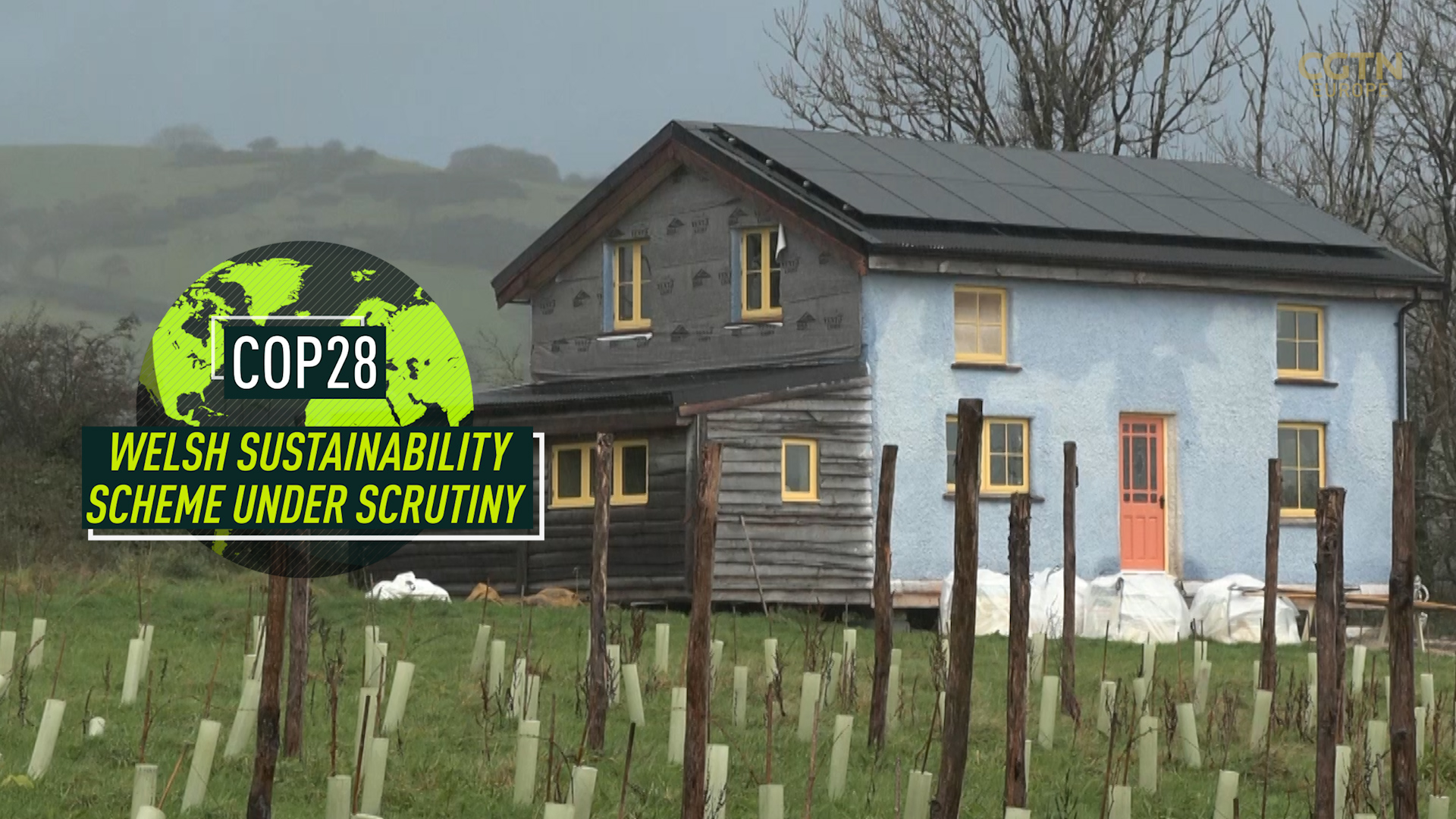03:16

How feasible is it to live completely off the grid and sustain yourself in terms of food, energy, finances and quality of life? Essentially to try and live in harmony with nature?
While the UK's goal of reaching zero carbon emissions may be decades off, some families in rural Wales are trying - and in some cases succeeding - to speed things along by building their own self-sustainable, zero-carbon homes under a scheme called the One Planet Development.
But while such programs, designed to inspire people to live at one with their environment, may give us a glimpse of what's possible in the future for some, skeptics say their aims are still unattainable for many - and that the policy can be even abused. However, that hasn't put people off from trying in good faith.
Near the picturesque west Welsh village of Llansadwrn, Sioned and her partner Antonio are building a timber framed house, lined with hemp and fully insulated. Solar panels on the roof will provide power and biomass will be grown for heating.
READ MORE:
Why is Rishi Sunak watering down the UK's climate pledges of COP26?
Germany finally warming to solar power benefits
World's largest genetic study promises healthcare revolution
"It means that we can be self-sustainable, that we can generate electricity, and that we have our own source of water, and that we know how to look after ourselves and our family by growing our own food on site," Sioned tells CGTN Europe.

The Welsh government is giving permission for construction of homes in rural Wales so long as they are zero carbon in construction and use. /CGTN Europe
The Welsh government is giving permission for construction of homes in rural Wales so long as they are zero carbon in construction and use. /CGTN Europe
The couple are just some of the many families projecting a future based on the One Planet Development in western Wales, where permission for construction of homes is granted so long as they are zero carbon in construction and use. Essentially the policy allows people to live in the open countryside and - up to a point - bypass local authority planning rules.
But, they must prove their proposal within five years, and live within the requirement of lowering their carbon footprint. For Antonio and Sioned, thanks in part to a warming climate, they plan to realize this dream by developing a modest vineyard in a few fields around their house.
"We're not trying to earn a lot of money. What we're trying to do is earn enough to feed ourselves and pay for the bills that we have to pay for… and to keep things as minimal as possible," says Antonio. "We're going to try to make the prices as low as possible, which sounds counterintuitive, but I'm from Italy originally, and there a winery feeds the local village. "
Antonio and Sioned aren't alone. Nearby in Coed Talylan, a 30 hectare woodland on the western edge of the Bannau Brycheiniog, known in English as the Brecon Beacons, Sara and James are establishing a model community land trust.
Their plan is to develop a co-sufficient, low-impact, housing co-operative through the government scheme to "exemplify the social, environmental and economic benefits of mutual home ownership for aspiring landworkers."

Those who are trying their hands at eco living often find it hard work, both in terms of cultivating the land and balancing the bureaucracy. /CGTN Europe
Those who are trying their hands at eco living often find it hard work, both in terms of cultivating the land and balancing the bureaucracy. /CGTN Europe
Part of that includes developing business activities that draw on innovative techniques of mushroom cultivation, horticulture, timber processing, knowledge sharing and training in skills essential for building distributed networks of rural enterprise. A dream for many wanting to escape modern urban life.
"People who want to see this are passionate about the environment. They may also want to get out of the rat race, but at the same time, it's hard work," says Sara. "Basically, the planning process is actually quite cumbersome and there's a lot of hidden costs within that."
Some locals who have been in the area longer are also growing skeptical over certain parts of the scheme. They say there are drawbacks when it comes to making sure those benefiting from the program are actually sticking to the green guidelines.
"They're supposed to do an annual monitoring," says local farmer and Carmarthenshire County councilor Gareth Thomas. "But due to the constraints on the amount of people in the planning department and the cost of actually monitoring all these, it's not done."
With farmland and planning permission so expensive here, he even accuses some people of abusing the system by using it to get a cheap plot of land to build a house on.
And while the green pioneers here say a low-carbon lifestyle can be affordable, what's actually being done to encourage locals, as well as incomers, to try and reduce their carbon footprints?
"It's not widely advertized by the very government that actually created it," says Sioned. "It takes a lot of work, a lot of paperwork, and a lot of research as well, which maybe doesn't make the policy as accessible to everybody as it should be."
The cost-of-living crisis in the UK and the high cost of buying an affordable home also makes it harder for the majority of people to invest time and money to adopt an off-grid lifestyle. But as a model for a greener and perhaps happier life, those building their lives under the scheme can count their blessings.

Subscribe to Storyboard: A weekly newsletter bringing you the best of CGTN every Friday